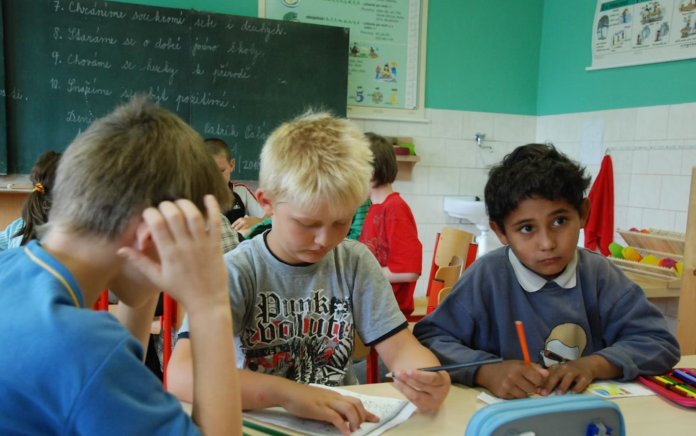The European Commission issued a formal notice to the Czech Republic for non-compliance with EU anti-discrimination laws, citing the continued segregation of Roma children in schools.
In the Czech Republic, many Roma children are placed in schools for children with disabilities or separate classes in disproportionate numbers, despite reforms.
“Roma children are still overrepresented in separate classes or schools for pupils with mental/physical impairments or severe developmental or behavioural disorders.”
The Czech Roma community welcomed the European Commission’s notification. Michal Miko from RomanoNet, a network of organisations supporting Roma rights, stated:
The Commission rightly points out that the situation remains unsatisfactory. Roma children are still unjustly placed in special schools, which is unacceptable and contrary to European norms. The European Commission’s call should be seen as a final warning. The Czech Republic must take concrete measures to remedy this situation and ensure that no child is discriminated against based on his or her ethnic origin.
According to Czech NGOs for the protection of Roma rights, the segregation of children affects the future integration of Roma people into society.
“The current problems are not only a failure of the education system, but also of wider society, failing to guarantee equal opportunities for all children.”
More than 100 schools in the Czech Republic currently operate with over a third of their schoolchildren being Roma. The country’s Education, Youth and Sports Ministry also recognised the issue of segregation of Roma children in schools. The Ministry’s spokeswoman Tereza Fojtová said:
The ministry is currently awaiting receipt of the European Commission’s letter to comment on the individual points.
The Ministry also emphasised its commitment to addressing the situation by implementing measures to ensure equal access to education for all children. Key measures include adjustments to the regional education funding system with additional resources allocated to schools with a higher proportion of schoolchildren from socio-economically disadvantaged backgrounds.
